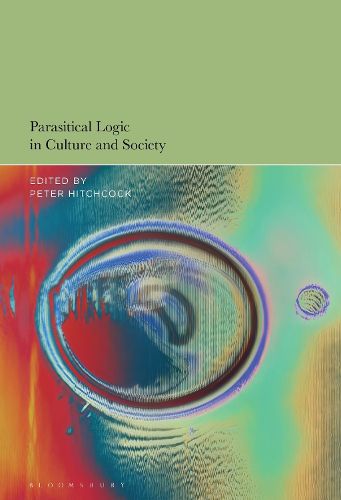Readings Newsletter
Become a Readings Member to make your shopping experience even easier.
Sign in or sign up for free!
You’re not far away from qualifying for FREE standard shipping within Australia
You’ve qualified for FREE standard shipping within Australia
The cart is loading…






In essays on literature, film, capitalism, and the university, this book illuminates and deepens the understanding of the parasite as a metaphor for cultural and social critique.
While symbiosis may harm the host to the benefit of the parasite, humans have nonetheless developed complex networks to rationalize intra-species parasitism. From influence to borrowing to the "creativity" of AI, and from more obvious historical discourses of appropriation, like colonialism and imperialism, parasitical logic has distinct cultural genealogies. The ubiquity of parasites seems to cheat substantial theorization, but this collection offers lively and suggestive essays on parasitical logic from global and interdisciplinary perspectives with a particular spotlight on its human and posthuman impress.
Parasitical Logic in Culture and Society assesses this condition via three complementary modes. First, it focuses on literary texts, which offers parasitism as a paradigm of cultural symbiosis through the artistic mutualism of the reader/writer. The second section approaches visual media, inspired by Bong Joon Ho's Parasite (2019), with essays that probe the representation of the parasite as a visual logic with both socio-political effects and challenges to genre and history. The third section concerns the provocative theme of parasitism in institutional structures, including within the US Army and the privatized university.
Authors in this collection ask how ideas dedicated to the diminution of exploitation might confront the power of parasitism in the production and reproduction of inequality in everyday life. Should one fight parasitical social and cultural structures or aim to live their contradictions as a universal norm? Or, does a force of nature simply condemn humanity to, as a poet once put it, prey on itself like monsters of the deep?
$9.00 standard shipping within Australia
FREE standard shipping within Australia for orders over $100.00
Express & International shipping calculated at checkout
Stock availability can be subject to change without notice. We recommend calling the shop or contacting our online team to check availability of low stock items. Please see our Shopping Online page for more details.
In essays on literature, film, capitalism, and the university, this book illuminates and deepens the understanding of the parasite as a metaphor for cultural and social critique.
While symbiosis may harm the host to the benefit of the parasite, humans have nonetheless developed complex networks to rationalize intra-species parasitism. From influence to borrowing to the "creativity" of AI, and from more obvious historical discourses of appropriation, like colonialism and imperialism, parasitical logic has distinct cultural genealogies. The ubiquity of parasites seems to cheat substantial theorization, but this collection offers lively and suggestive essays on parasitical logic from global and interdisciplinary perspectives with a particular spotlight on its human and posthuman impress.
Parasitical Logic in Culture and Society assesses this condition via three complementary modes. First, it focuses on literary texts, which offers parasitism as a paradigm of cultural symbiosis through the artistic mutualism of the reader/writer. The second section approaches visual media, inspired by Bong Joon Ho's Parasite (2019), with essays that probe the representation of the parasite as a visual logic with both socio-political effects and challenges to genre and history. The third section concerns the provocative theme of parasitism in institutional structures, including within the US Army and the privatized university.
Authors in this collection ask how ideas dedicated to the diminution of exploitation might confront the power of parasitism in the production and reproduction of inequality in everyday life. Should one fight parasitical social and cultural structures or aim to live their contradictions as a universal norm? Or, does a force of nature simply condemn humanity to, as a poet once put it, prey on itself like monsters of the deep?